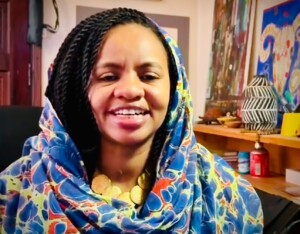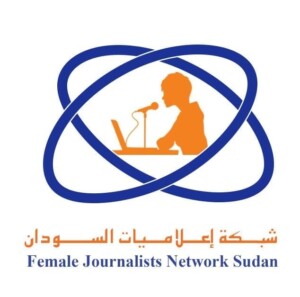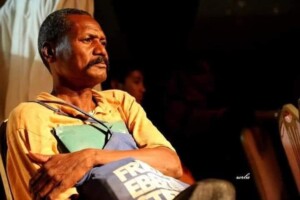Sudanese journalists rally for press freedom
A group of Sudanese journalists, including several leading figures in the Khartoum newspaper world, staged a rally in front of the National Council for Press and Publications in Khartoum yesterday.
A group of Sudanese journalists, including several leading figures in the Khartoum newspaper world, staged a rally in front of the National Council for Press and Publications in Khartoum yesterday.
The protestors called for an end to the curbs on press freedom in Sudan, and against the ongoing campaign on confiscations by the National Intelligence and Security Service (NISS).
Journalists from El Jareeda newspaper journalists handed a memorandum to the council in protest against their newspaper’s repeated confiscation.
On Thursday Journalist Khaled Fathi told Radio Dabanga that the rally was intended to be a strongly worded protest against the practices of National Intelligence and Security Service (NISS) against the newspapers and the steps taken by confiscating El Jareeda newspaper for the eleventh times since November 27.
“There will be other escalation steps because what the NISS is doing against newspapers is a systematic destruction process”
He said that El Jareeda newspaper and the Sudanese Journalists Network handed over a memorandum to the director of the National Council for Press and Publications Council, Mohammad Fadlallah, in the presence of the Secretary General of the Council.
He explained that the council said it would discuss the memorandum filed by the competent authorities and confirmed that “there will be other escalation steps because what the NISS is doing against newspapers is a systematic destruction process”.
‘Curbs justified’
Ibrahim Mahmoud Hamid, the Assistant to the President has justified the restrictions on political and press freedoms because of the security conditions prevailing in the country.
He said “no political party or media body is allowed to threaten the security of the State”.
On Thursday he told a news conference that “a media battle is more dangerous than war,” adding that “it is through media revolutions that governments were toppled”.
He said that “some opposition electronic newspapers do not allow the freedoms demanded by their parties for our affiliates to express their opinions. We will not allow such media an access to Sudan.”















 and then
and then